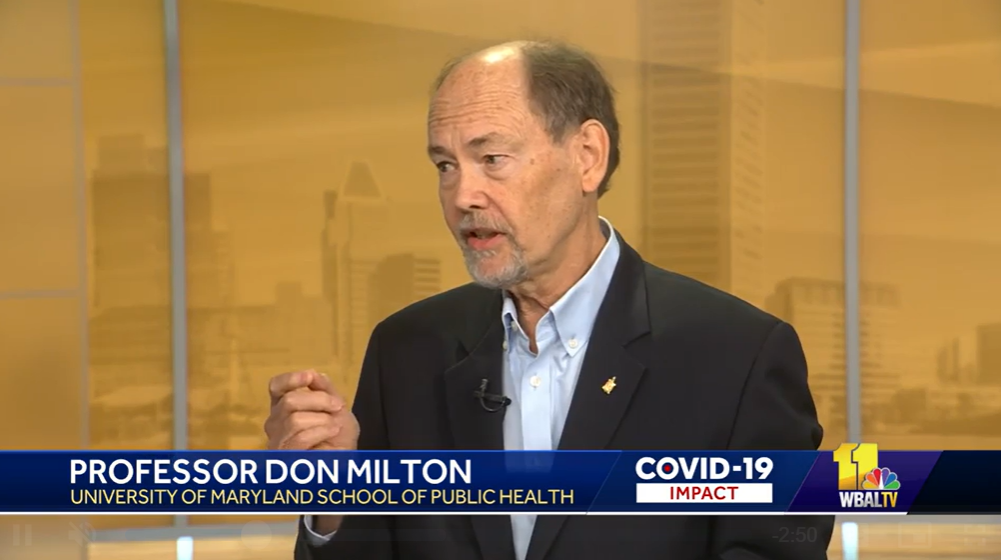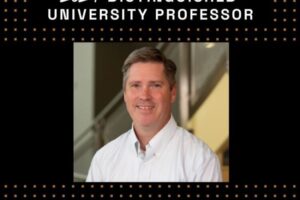MPower Professor Donald Milton Featured on WBAL-TV Baltimore

Published on the Fischell Institute | September 15, 2023
Fischell Institute Affiliate Fellow Don Milton (SPH) was featured on WBAL-TV 11 Baltimore on Sunday, September 10, in a segment titled “Medical Alert: COVID-19 cases on the rise.”
Reporter Jenyne Donaldson spoke with Milton after the World Health Organization (WHO) issued a warning last week due to a recent spike in COVID-19 cases.
Milton is an internationally recognized expert on the airborne transmission of respiratory viruses. He developed the concept of using indoor CO2 to directly measure how much air is being rebreathed and the risk of becoming infected from breathing indoor air. He led the UMD StopCOVID study (investigating SARS-CoV-2 transmission) and is principal investigator of the NIH-funded Evaluating Modes of Transmission (EMIT-2) study, a five-year, $15 million UMD-UMB collaboration to perform randomized controlled trials that will define the modes and mechanisms of influenza transmission.
In the segment, Donaldson and Milton discussed the expectations of the latest wave of COVID-19 and the changes since 2020.
“Everyone has been vaccinated or has had COVID by now,” Milton said during the interview. “So those who survived have some immunity to the virus.”
Milton went on to explain that due to that immunity, COVID-19 has less power to hospitalize or kill people. However, some people are more vulnerable than others, such as Milton’s one-month-old grandchild, who has yet to be vaccinated.
“We need to protect those people who are vulnerable, whether they’re immunosuppressed or just too young to have been vaccinated,” Milton said.
During the segment, Donaldson asked Milton if people should continue to wear masks. Milton recommended masking, especially if someone is vulnerable or will be around vulnerable people.
“An N95 mask will reduce by 99 percent the amount of virus that you put in the air if you’re infected and don’t know it,” said Milton.
Donaldson also asked Milton if the University of Maryland’s new COVID-19 policy would influence other universities and places to enact new policies.
“I think that will be happening, and two of the things you can do to reduce the chance of infecting people, such as roommates or housemates, is employ ventilation and filtration,” Milton replied.
Milton added that when it’s too hot outdoors to open the windows, there is the option to run a HEPA filter or a Corsi-Rosenthal Box using a box fan and some MERV 13 filters. Milton also stated that these DIY boxes are effective, inexpensive and can be quickly built.
“Filtration is even better because it doesn’t bring in the hot air, and it can remove the Canadian wildfire smoke too because we’re still dealing with that,” he said.
The segment ended with Donaldson and Milton discussing that unexpired COVID-19 rapid tests are still available at local pharmacies. Milton also recommends getting tested, which can now be done at many urgent care centers and pharmacies.



